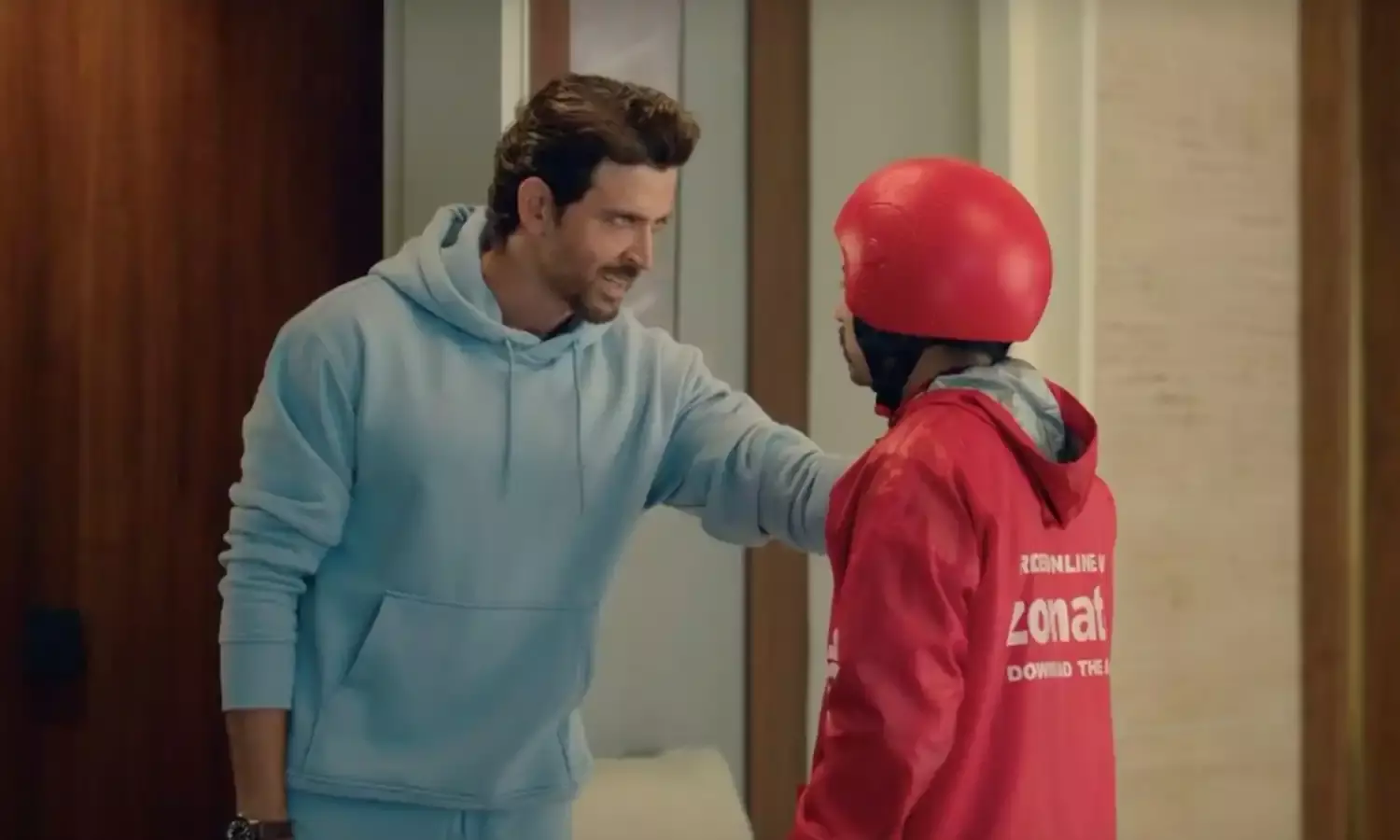New Zomato Ads Further Dehumanize its ‘Valets’
A toxic workplace celebrated on screen

‘When algorithms dictate your work: Life as a food delivery partner’, a recent study that describes the incentive structure and ‘rate card’ of Zomato valets and Swiggy executives, is indicative of the silent battles fought by delivery workers everyday against a pay structure which is minimal as compared to their expenses.
Further substantiating the unfairness of this robot life is a recent ad campaign by Zomato featuring Hrithik Roshan and Katrina Kaif launched with the tagline ‘Har Customer Hai Star!’
In its quest to establish the supremacy of its customers, Zomato once again promotes the view that their delivery ‘valets’ are robots who will come through for the customer no matter what happens.
The ads revolve around a worker delivering food items to Hrithik Roshan and to Katrina Kaif. Naturally, the valet is excited to see the celebrity at the door, who greet him and want to click a selfie with him, or offer him cake to eat.
Once he steps inside their homes to get the cake or photograph, however, the valet receives another order for delivery and leaves immediately because he does not want to be late.
The ad ends on a jingle, “Katrina ho ya aap, apne liye har customer hai star” – Whether you or Katrina, for us every customer is a star.
In the Hrithik Roshan one, the valet is shown walking in the rain to his bike as he leaves the star’s home.
Imagine stepping out for work and you encounter a once in a lifetime opportunity which would barely take two minutes to fulfil, but your workspace is so toxic that this two minute delay will cause a deduction in your rating and the incentives you receive.
Moreover not all customers are out there greeting these valets and executives with selfies and cake, as many recent incidents in the news highlight the poor treatment these valets receive from some customers.
In a country where we treat delivery boys and men, waiters, labourers very poorly, brands are now steering the narrative around their advertisements towards humanising their workers through personal stories and struggles.
A recent ad campaign by Gulf Oil around a truck driver can be seen as one such example. This campaign too sets the tone that workers are non-humans who must be left to work mechanically and punished if they display autonomy or emotional abilities.
The campaign reflects on how deeply this division is embedded in our society that it floats up in some or other manner in the advertisements, films, etc. that we produce. This ad should remind us of the treatment we give workers in today’s India.



